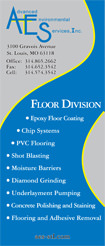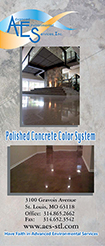Mold Remediation FAQs

Mold remediation can be a complex undertaking, what may appear to be a simple project can easily make problems much worse if not properly handled. Here we have compiled the most common questions, which get asked time and time again regarding mold and mold removal. We hope these will make your decision easier and alleviate some of your concerns.
What is mold remediation?
Mold remediation is the process of removing and cleaning all traces of mold from an indoor environment. During the mold remediation project, specialists use equipment and methods to remove the mold completely.
What is the difference between mold and mildew?
Mold and mildew are two different types of fungi, these can be distinguished from each other by their different colors and textures. The more common one that is found in a home environment is mildew. However, both can have harmful effects on your health and home.
What does mold look like?
Mold can be many different colors, these range from dark black, all the way to a light green. It is for this reason that it may be difficult to determine if what is in your home is mold. In some cases, it is possible to tell mold is present from the visibility on the walls, or if it is out of view, there could be a strong odor present. Due to this uncertainty, if you think you have mold present, you should contact an expert to test for mold before enlisting the services of a mold remediation company.
What causes mold to grow?
Tiny spores find their way into your home through vents and leaks in your doors, windows, and ventilation. However, in order for them to grow, the spores need moisture and they grow fastest when there are high humidity levels. Once the spores find an area that has a high moisture content (often from a leak in a roof or flooded area), they begin to grow, digest, and destroy any surface they are on. This can include:
- Wood
- Wallpaper
- Insulation
- Painted surface
- Ceiling tiles
- Carpets
How does mold grow?

Like most living organisms, mold requires the proper nutrients, oxygen, water, and temperature to grow. The nutrients that the mold feeds on are found in dead organic materials such as wood, paper, or fabric. The moisture that the mold requires can come from a damp area, although some mold can obtain moisture from the air when humidity is above 70%. Normal indoor temperatures are an ideal breeding ground for mold to thrive, if temperatures are below 40F or above 100F, the mold will lay dormant until temperatures become more favorable.
How long does it take mold to grow or spread?
It is possible for mold to spread quite rapidly, especially if you try to clean the area improperly or disrupt it by rubbing it. If you spot mold, it is recommended not to wipe it down, especially with bleach, as this just turns it white rather than killing it and can cause the mold to spread.
Do I need to hire a mold remediation/removal expert to remove mold, or can I do it myself?
It can be very difficult to remove mold to a level that will prevent it from spreading and making the problem worse than it was before. When mold remediation is carried out, it should be done under a confined area that utilizes negative air flow and commercial grade antimicrobials that can help the mold from spreading and re-occurring. Therefore, it is most often recommended that you hire professionals for any major mold remediation project.
How much does mold remediation cost, and how long will it take?
Your mold remediation cost can depend on the severity of the mold problem, what materials are affected, and the size of the contaminated area. Prices typically range between $1500 to $10,000 for a home which is showing visible signs of mold. These factors will also have a bearing on the duration of the project. However, 1 to 5 days is the normal timeframe expected to complete most average jobs.
To get an accurate mold remediation estimate for your project, contact the mold removal experts at Advanced Environmental Services in St. Louis, St. Charles, and Columbia, Missouri today!



